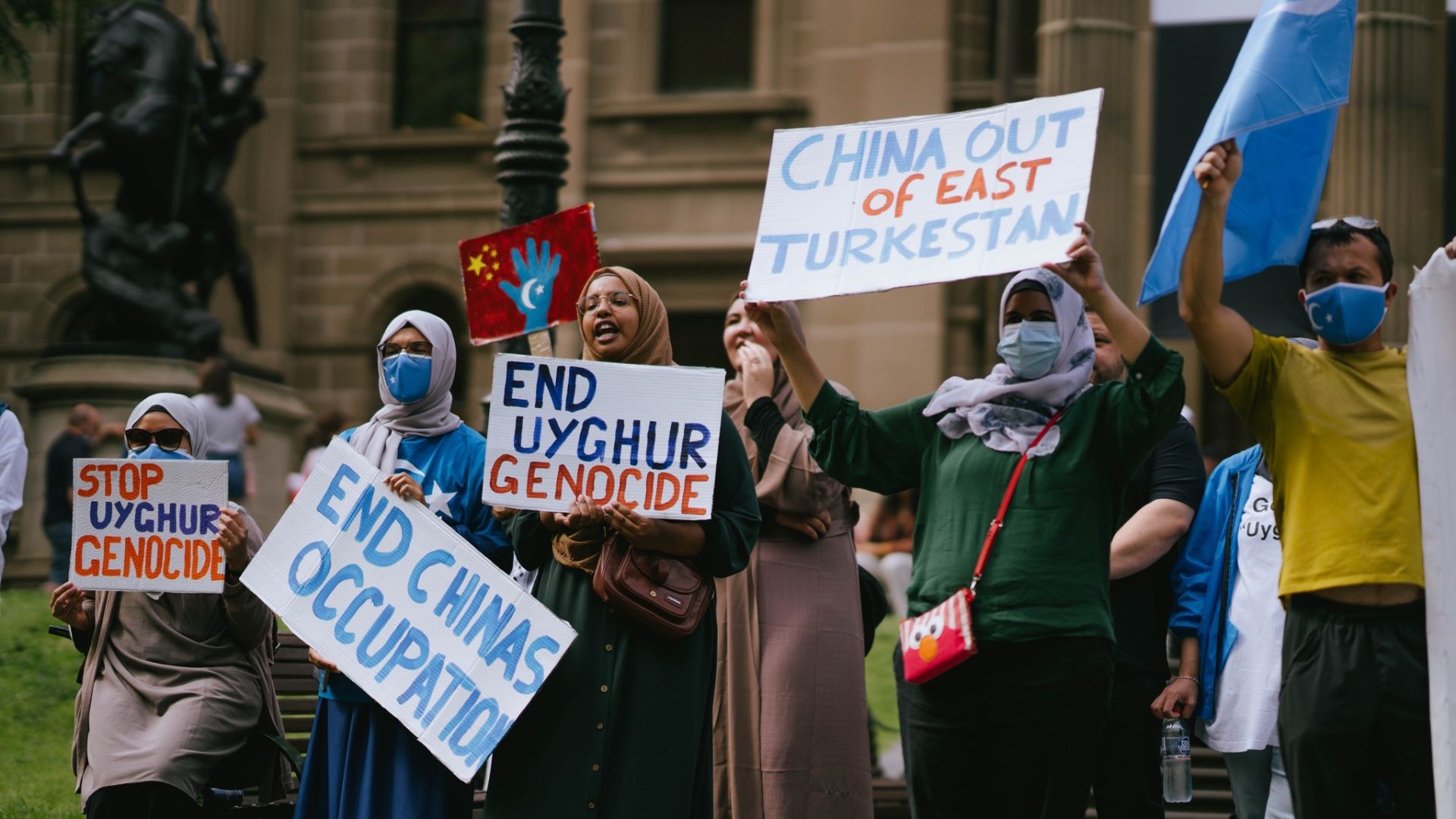Six years ago, Human Rights Watch sounded the alarm on the unlawful detainments of Uyghurs and other Muslim minorities in Xinjiang. Thousands were subjected to propaganda promoting Chinese identity in ‘political education’ centres built by the Chinese government.
Five years ago, a September report from the UN Committee on the Elimination of Racial Discrimination published an estimate of ten thousand to a million detainees. The following month, the Chinese government acknowledged these camps as ‘vocational training centres’ necessary to counter terrorism and extremism.
Four years ago, more than 400 pages from within the Chinese government were leaked, detailing and proving the Uyghur’s claims of mass detention and extreme punishment. Despite the Chinese government stating that most detainees had ‘graduated’, 39 camps tripled in size, expanding to the equivalent of around 140 soccer fields.
Three years ago, experts revealed that the Uyghurs were subjected to forced labour and sterilisation.
Two years ago, the United States declared China’s repression as genocide. President Biden subsequently signed the Uyghur Forced Labor Prevention Act, which banned imports from the Xinjiang region unless the importer could prove they were not made using forced labour.
So, why is it that a current genocide is going undetected and unreported in the media?
Where does Australia stand?
Last year in June, UTS hosted the Chinese Ambassador to deliver an address on the state of relations between Australia and China. On stage, the Ambassador referred to Uyghurs as ‘terrorists and separatists’. An Uyghur audience member interjected and said, ‘I am Uyghur, I am not a terrorist. Stop the genocide.’
Sumayah Jurad is an Uyghur contemporary artist and activist. She recalled feeling disappointed when she saw the video.
“The man who intervened is a close friend of my dad. Bahtiyar Bore spoke for all of us when he turned the Ambassador’s conclusiveness into a discussion that put doubt on his claims across Australia instead.”
“You can’t be sitting at the same table with someone who doesn’t play the same field as you,” Chanisheff told SBS News.
“We think it might be at the forefront, but not in the near future. This is what we're scared of, and this is urgent; this silent genocide is happening."
Jurad agreed, “We’ve been given permission to protest but aren’t those our rights as Australian citizens? We’re in contact with parliament officials who care and understand the situation with the CCP, but they’re not actively helping anyone.”
Last year in March, a sea of blue flowed in Town Hall. A crowd of 600 marched to protest the oppression.
“Not only did [the protest] show solidarity, but it sparked conversations with passers-by,” Jurad said. “Seeing their support helped motivate those of us who have been struggling with this genocide for the past decade, and made us feel proud of our efforts.”
Why is no one intervening?
The UN has not labelled the crisis as a ‘genocide’. Still, the 2022 report did find ‘widespread and systematic abuse of human rights, including arbitrary and discriminatory detention of perhaps more than a million people’.
The report was delayed by a year as China tried to prevent the release.
In 2019, two letters were sent to the UNHRC and UN High Commissioner for Human Rights regarding the detention program in Xinjiang. The first letter had 22 countries condemning China and calling for an end. The second letter had 37 countries, mainly Muslim-majority, defending China’s policies.
The CCP have massive influences over many other countries in terms of wealth and trade.
“Many do not want to risk the financial loss that will come with severing ties with China.” Jurad said.
Beijing is the top trading partner of 20 out of 57 Organization of Islamic Cooperation members, and most of these countries have also supported the CCP. However, a surprising silence is found in Türkiye (Turkey) where President Erdogan is the self-appointed protector of Sunni Muslims and Turkic people - which the Uyghurs are. In 2018, the Turkish lira had rapidly depreciated and Erdogan accepted economic assistance from China on the condition that he did not make irresponsible remarks about the Uyghur situation.
“That’s why we need more people attending protests and spreading the word on the genocide,” Jurad said. “We need people doing their own research rather than dismissing it as ‘Western propaganda’ and using their social media accounts to raise awareness.”
Standing up against China is difficult as the CCP sees this current genocide as a domestic issue. China’s actions in Xinjiang also transcends borders, thus making it difficult for intervention.”
What can we do to help?
In 2021, a bill was passed by the Australian government to ban imports of goods produced in Xinjiang by forced labour. However, many deem this as insufficient for Australia.
The Strategist recommends that the government ratify the International Labour Organisation’s 2014 Forced Labour Protocol, and strengthen the Modern Slavery Act 2018.
For citizens, Jurad recommends conversation by using social media accounts to repost information, attending protests, and donating.
These small actions go a long way to strengthen our resolve and help fight the CCPs inhumane treatment of ethnic groups in our occupied lands. Please remember, we’re against the CCP, not the Chinese ethnicity.
And Jurad is right. Conversations around the human rights abuses of the Chinese Communist Party can be difficult to navigate within a Western culture in which Eastern conflicts are flattened to simply two sides in opposition. Minority vs. majority. East vs. West. However, it is important to explore the discourse around the CCP, the roles of foreign and domestic political bodies and the genocide of the Uyghur Muslims with nuance and sensitivity.
Photo credits to Stand4Uyghurs - Australia


 -
-